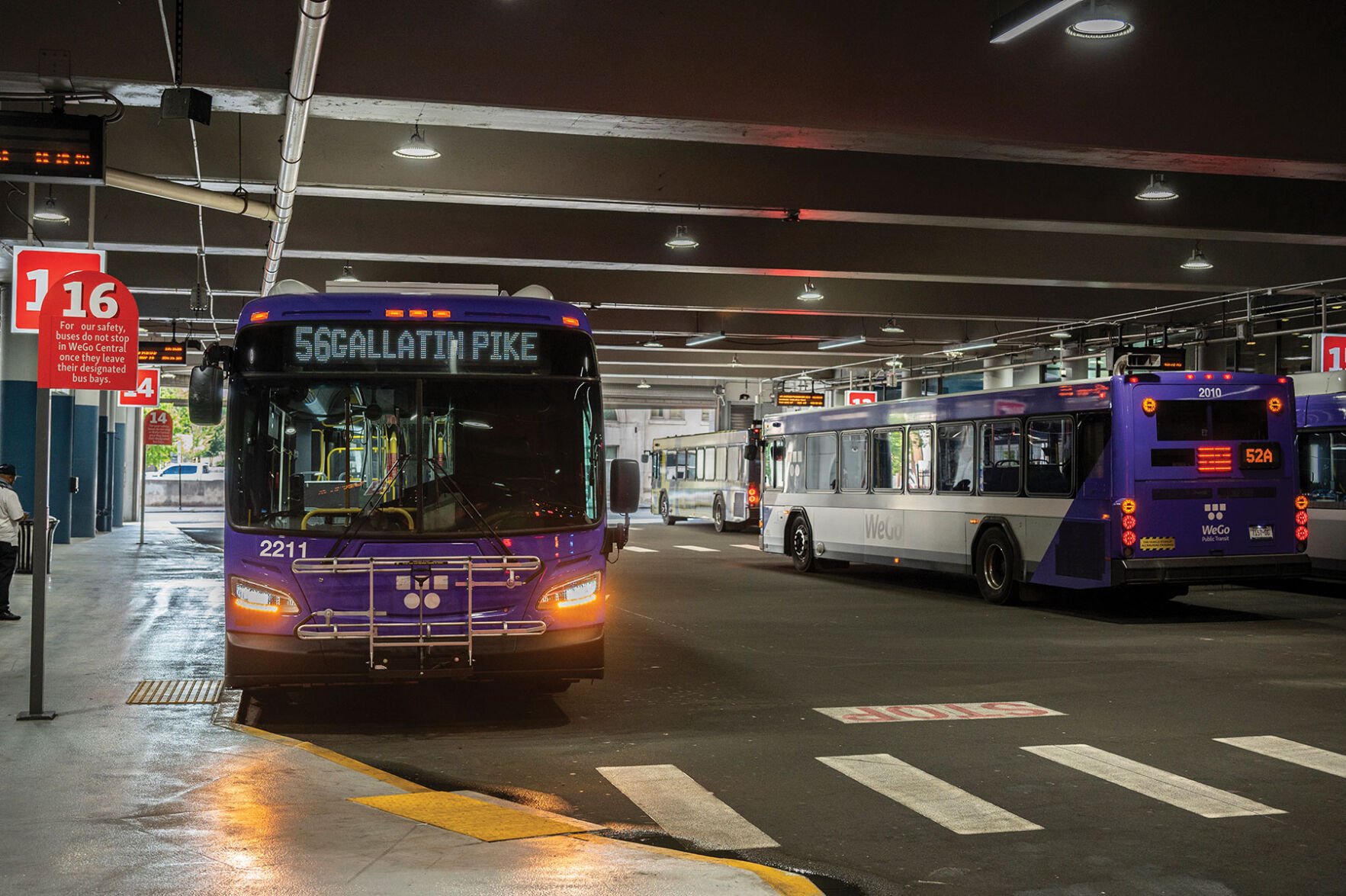Big money, progressive advocates and the political elite rarely align on the city’s top issues. Nashville’s transit referendum — a half-cent increase to the county sales tax to fund new sidewalks, traffic improvements and bus routes — is a rare exception.
Digging into Mayor Freddie O’Connell’s transit referendum, which will be on the ballot in November
If passed, the plan — which Mayor Freddie O’Connell announced in April — would earmark a steady stream of tax revenue for an estimated $6.93 billion in transportation-related spending over 15 years. Internal polling from the pro-transit campaign consistently predicts the referendum passing, though its margin varies from a few percentage points to roughly 30, according to a business leader affiliated with the campaign who declined to comment on the record.
Campaign finance disclosures filed in early October show a $530,225 ad blitz from the Green Lights for Nashville PAC from late July to Sept. 30. (All that money went to ad-buying firm Old Town Media, the real winners so far this cycle.) Green Lights for Nashville is funded by the Nashville Moves Action Fund, a federal 501(c)(4) with support from top business leaders that claimed in May to have funding “in excess of seven figures.” The rest of that money, likely spent throughout October, will be disclosed in coming weeks.
The money flows through Nashville Moves, a campaign legally independent from the mayor. Jeff Morris and Scott Dietz, both O’Connell campaign veterans, are steering campaign efforts. Dietz’s father, attorney Wally Dietz, serves as Metro's legal director.
Advocacy leaders lay grassroots groundwork for the mayor’s Nov. 5 transit referendum
The Tennessee Immigrant and Refugee Rights Coalition, the Equity Alliance and Stand Up Nashville have also organized behind the “yes” vote as Shift Nashville. All are prominent progressive advocacy groups often at odds with big money and established downtown politicians. The groups have planned a get-out-the-vote block party for Saturday Oct. 19.
“The transit plan will add 7.3 miles of complete streets improving travel for pedestrians, cyclists, bus riders and drivers, smart traffic signals at 105 intersections, 48 improved bus stop locations with shelters, and 18 miles of new or upgraded sidewalks in South Nashville,” Shift says in a press release. “But these improvements will only happen if voters understand the benefits and get out to vote.”
Sparse opposition has focused on the sales tax mechanism in front of voters. Perennial political gadfly Lee Beaman, a wealthy conservative auto dealer, bankrolled the Committee to Stop Unfair Tax with $50,000. That group has cast the referendum as a “transit tax,” a simple slogan on the group’s free yard signs, which have popped up in Nashville neighborhoods. Patsy Harvey, a Belle Meade resident who gave $1,000 to the committee, penned a disjointed Oct. 9 opinion piece in The Tennessean predicated on her lack of knowledge about the plan.
Bill Howell, a longtime tax activist and member of Nashville Organized for Action and Hope, is the one-man show pushing Property Tax 4 Nashville Transit, another opposition committee — although the NOAH board unanimously voted to endorse the transit referendum this summer. Sales taxes, Howell says, are back-breaking for low-income consumers, unfairly distributing the tax burden across the income spectrum.
Mayor’s $3.1 billion transit plan focuses on buses, sidewalks, transit centers and traffic signals
His opposition argues for property tax funding, a revenue stream that would draw more from the wealthy and from commercial activity. Howell has urged the mayor publicly and privately — in a meeting with fellow NOAH members that, according to Howell, went nowhere — to look for funding from property taxes, which are expected to increase after a countywide reassessment next year.
“Council has shown a unanimous commitment to transit, and I think they’d follow up a failed referendum with property tax funding, rather than admit that what they really wanted was a regressive increase in our sales tax,” Howell tells the Scene. “I think that comes from our business community to keep cheap labor subservient and desperate for work.”
The 0.5 percentage point sales tax increase eyed for the transit referendum was authorized via Tennessee’s IMPROVE Act, passed in 2017. Howell posits that top Nashville business leaders lobbied for the IMPROVE sales tax route in part to keep the tax burden off property owners.
The mayor's "Choose How You Move" transit referendum will appear on the Nov. 5 general election ballot. As of Friday, more than 30,000 Davidson County residents have voted early. Early voting ends Oct. 31.








